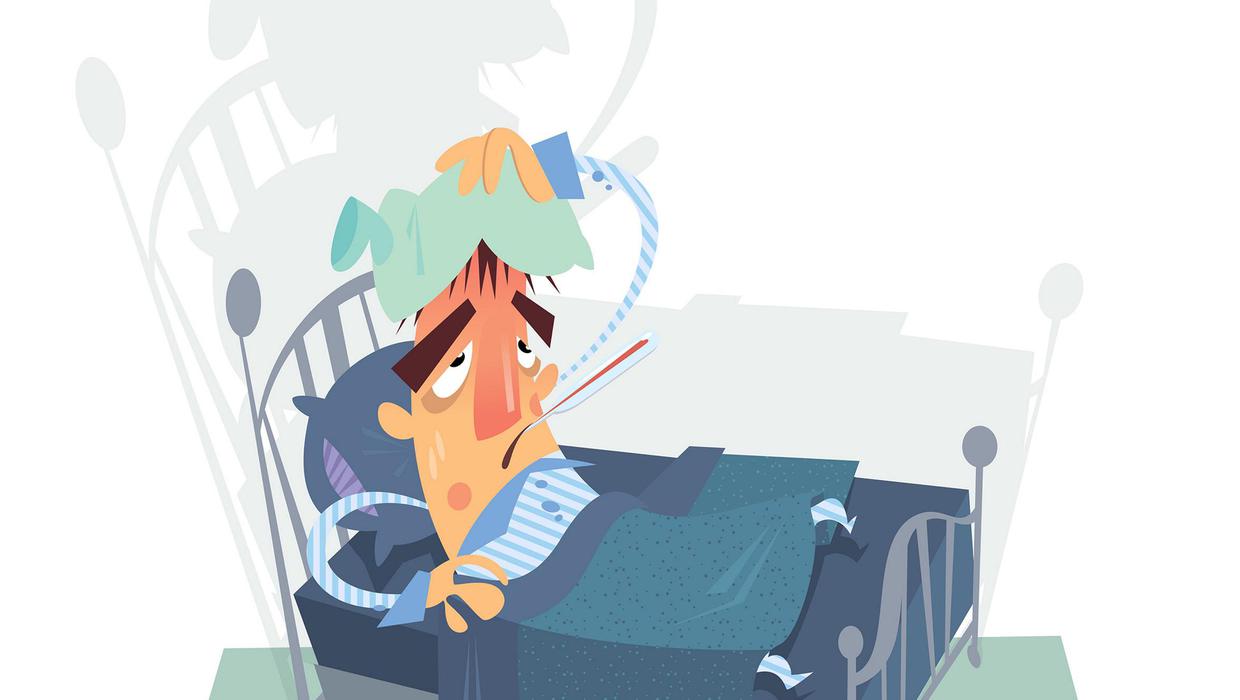On the occasion of World Hepatitis Day, it’s essential to talk about how Hepatitis is one of the most common infections that can be transmitted through sexual activity. It’s a lesser-known fact that Hepatitis B (HBV) is 50 to 100 times easier to transmit sexually than HIV ( the virus that causes AIDS). Even mere oral sex is enough to complete the transfer. The spread of Hepatitis is increasing rapidly, and the only way to curb this spread is to address the elephant in the room. Why is talking about Sexually Transmitted Diseases aka STDs so damn hard?
Sexually transmitted diseases (STDs) or sexually transmitted infections (STIs) are infections that are passed onto another person from one person through sexual contact. This just doesn’t include vaginal or anal sex, but can be transmitted through oral sex or other forms of intimate physical contact. This is because some STDs are spread by skin-to-skin contact.

Our society is slowly and steadily becoming more open-minded and comfortable with talking about uncomfortable topics like mental health, sex and associated topics. However, there is still a major barrier when it comes to sexually transmitted diseases.
Why Is Talking About Sexually Transmitted Diseases So Hushed?
Talking about STDs is avoided in general respect to an extent that many people learn about it in their adulthood that too, isn’t always done completely. One of the reasons for this is the stigmas attached to being sexually active. People are judged or condemned for being infected with these infections. If someone is infected with STDs they are considered slutty and dirty. This associates shame with STDs and therefore, the people with visible symptoms are alienated not only from society but also from their friends and family.
This stigma is also one of the major reasons behind high infections in the population. Firstly because people lack awareness about the diseases and related aspects. Secondly, because many of the cases go untested. This low rate of testing can be attributed to the infection being asymptomatic or the doctor’s bias.


The implicit bias toward STDs which is prevalent in society also affects physicians and doctors and it leads to differential behaviour and treatment by the doctor towards a person infected with STDs. This judgemental behaviour towards STDs can be expected by a layman but when a doctor who studies the functioning of these infections, does this, they fracture the practical approach towards STDs more than anything else.
So, people don’t visit the doctors out of sheer fear of judgement. This leads to a prevalence and of course, the rapid spread of undetected infections among the general population. According to World Health Organization (WHO), more than 1 million people acquire a sexually transmitted infection (STI) every day globally. WHO estimates that 500 million new cases of one of four curable STIs (chlamydia, gonorrhoea, syphilis and trichomoniasis) occur each year worldwide. Yet, these people choose to suffer instead of talking about their problems due to fear. I mean, this has to change, right?
Can This Problem Be Eradicated?

 Source: Thinkglobalhealth.org
Source: Thinkglobalhealth.org
To eradicate the problem of STDs from the general population, We need to solve the problem from the root cause that is, work on reducing the related social stigma. To do away with this stigma we need to:
1. Improve the sexual education of the masses with a special emphasis on the topic of STDs.
2. Spread awareness about the prevalence of the disease and how everyone needs to get tested. If everyone starts getting tested it will reduce the shame around STDs.
3. Start discussions on this topic on social media, televisions, newspapers, etc. Bringing STDs into the public domain will firstly spread much-needed awareness and make it less of a taboo.
4. Treating it as a disease and not a label on the character of the person.
5. Including STD tests in the routine tests at health care centres, both government and private.
Sexually transmitted diseases (STDs) shouldn’t be covered up behind a veil. It shouldn’t be a topic appropriate for a dirty alley. It is a disease affecting millions of people globally and should be treated as any other disease and with similar diligence.
Being sick isn’t a person’s fault, why should we end up judging them for their health? This thought process needs to be nipped in the bud.
So, How Can You Be Safe In Case Of Future Partners?
1. The First Step Towards This Is Communication


you must ask how sexually active or involved your partner has been in the past. This conversation has its awkwardness and hesitation, sometimes it’s even considered irrelevant. This, however, is very important before you have any physical relationship with them, because only after knowing if your partner was sexually involved or not, can you know about the probability of him/her having an infection.
2. Understand That Your Work Isn’t Complete Yet

 Source: consumer.healthday.com
Source: consumer.healthday.com
After digging into the past your work is not complete. If your partner has been sexually active even with a single person. As long as there was any contact between their private areas, there is a possibility of STDs being transmitted. After this, it comes to the difficult task of actually asking your partner to either get tested or their test results for STD diagnosis.
This conversation which should be considered as being cautious is often not easy in our society because of the stigmas attached to STDs. Therefore, asking if you have an STD is immediately equated to a question on the character of the person. Like every other problem, this too can be solved by a detailed discussion regarding STDs and how essential it is to get tested, to lead a healthier life with safer sex. Hold their hand and support them as you get tested together, making life safer for each other.
3. In Case The Result Is Positive
Support your partner, be there for them and work on eradicating the stigma in both of your heads while studying and learning extensively about their problem. Find a supportive and efficient doctor and make sure that they receive the right medicines to better their condition and work towards a healthier life, physically as well as sexually.
It is a fact that every year, about 6 per cent of the adult population in India are infected with sexually transmitted infections and reproductive tract infections and 90 per cent of these cases go unrecognised. Out of this, more than half cases are of Hepatitis and people fear the judgement that comes with their results, so they risk their lives. We need to do something about this.
The need of the hour is to start the conversation to end the stigma around STDs so people get tested frequently. Let’s spread the word and curb the infection, today.
Image Source: Freepik
The Birds And The Bees: Are We The Reason Behind Slut Shaming?
Discovered on: 2022-07-28 03:14:28
Source: Why Is Talking About STDs So Damn Hard?



